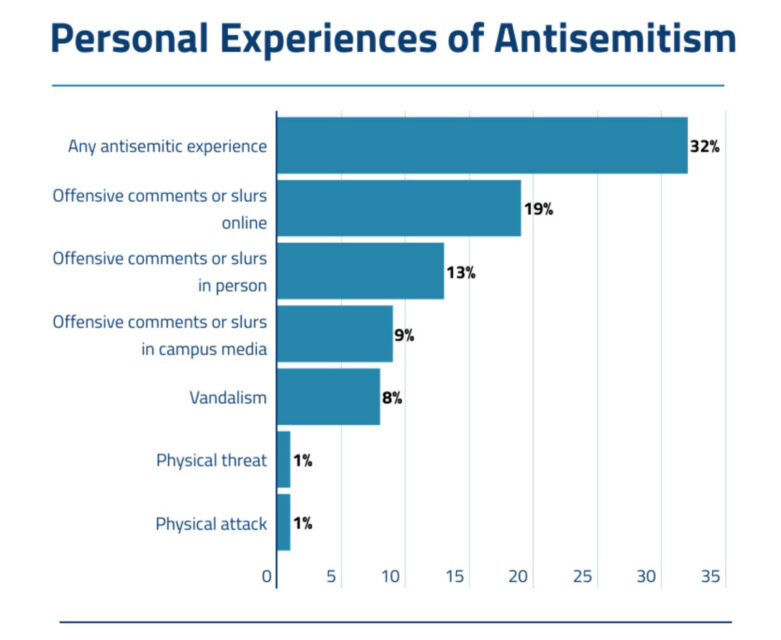This was my Hanukkah gift.
Fred Maroun, who is of Lebanese heritage, asked on Facebook:
“A serious question to my Jewish friends. What do you expect from allies of Jews to do that would help in fighting antisemitism?”
To which I say: Wow. Thanks for asking.
Because no one ever really asks this question.
But, Fred did, and in a column in Times of Israel, he wrote about what he learned from those who took the time to respond to him.
His answers were warm and loving. To wit:
- Learn about Jewish history.
- Recognize that anti-Zionism is antisemitism.
- Don’t judge Jews by a higher standard.
- Don’t support or appease people who want to kill Jews.
- Expose and neutralize antisemites.
Fred did a wonderful job of taking the concept of allyship — an idea that has gotten much traction lately, with regard to racial and gender-based relations — and applying it to a another challenged group — the Jews.
But, more than this: Fred did what all authentic would-be allies — of any group — should do. He asked the Jews: “What do you need?” He did not presume to tell us; he chose to be present for us.
I would add these suggestions as well — to would-be allies of Jews.
I call it “Be Your Own ADL.”
- When an antisemitic incident happens, write a letter to your local newspaper about it.
- When an antisemitic incident happens, if there they are praying in person, go to your local synagogue. Before the service starts, tell the rabbi or lay leader that you are there out of solidarity with the Jewish people. The rabbi might announce that, which will mean a lot to the congregants.
- When an incident happens, and if you are affiliated with a religious institution, ask that institution to issue a statement in sympathy and solidarity.
- Correct misconceptions that come from your fellow gentiles. Challenge terminology, especially as they appear in church. “Old Testament.” “Pharisee.” “Vengeful god of the Jews.” “Religion of law vs. religion of love.” Be aware of the subtle and not so subtle anti-Jewish biases that might exist in your faith tradition.
- Be aware of anti-Israel vocabulary: genocide; colonialism; apartheid. Challenge those who use those terms.
- Call out celebrity antisemites with as much clarity as you would expose any other celebrity hater. Eric Clapton is a full-tilt racist? Then, criticize Mel Gibson’s full-tilt antisemitism (along with other ideological quirks). Actor Joshua Malina makes the case abundantly clear.
Finally, let me tell you my recent experience with an ally.
I have a dear friend who is the rector of an Episcopal church in a major American city. We recently had breakfast, and, as usual, our conversation turned to our experiences in the ministry.
He told me that someone on his vestry wanted to start a Palestine committee. He responded: ‘That is not going to happen. I support Israel.'”
I got chills, and it wasn’t the air conditioning.
“Now, mind you,” he continued, “there is much that Israel does that warrants criticism [Jeff here: of course. Why should Israelis have all the fun?] But, those people who want a Palestine Committee want a Palestine, without Israel.”
As we used to say in the 1960s: Right on.
Once upon a time — like, eighty years ago, in Europe — to be an ally to the Jews meant risking your life, and that of your family. I am talking about righteous gentiles who saved Jewish lives during the Shoah.
And even there, as Dara Horn states in her book, People Love Dead Jews:
The number of actual “righteous Gentiles” officially recognized by Yad Vashem, Israel’s national Holocaust museum and research center, for their efforts in rescuing Jews from the Holocaust is under 30,000 people, out of a European population at the time of nearly 300 million—or .001 percent.
(Dara is speaking at services tomorrow evening — December 10 — at 6:30 pm at Temple Israel, West Palm Beach. Her talk will be around 7 pm.)
Compared to the risks that those righteous few took during the Shoah, contemporary allyship really isn’t that hard. Or, it shouldn’t be.
We Jews have historically been quite adept at being allies. We never asked for a moral quid pro quo.
But, sometimes, it is nice.
Be an ally, It is the belated Hanukkah gift that keeps on giving.






